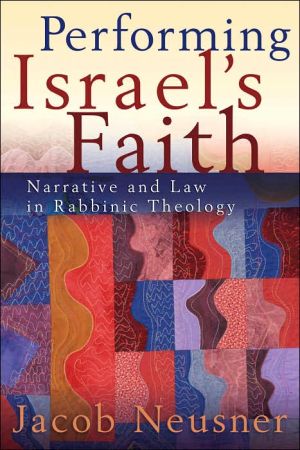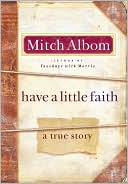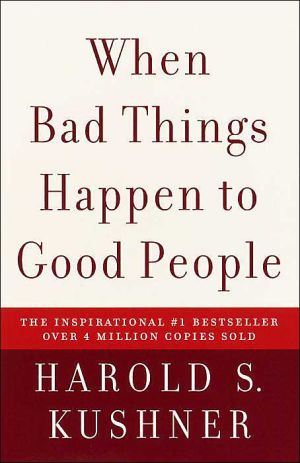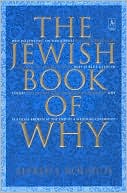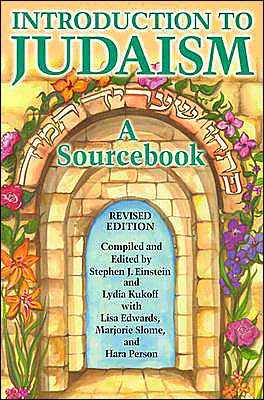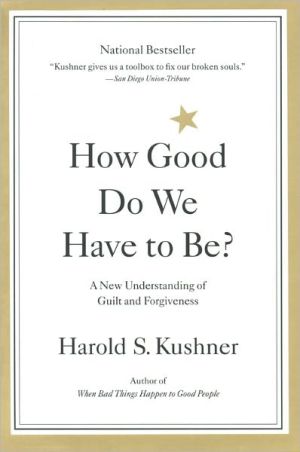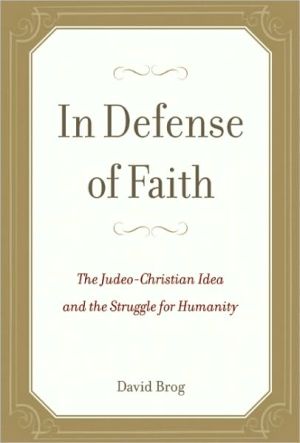Performing Israel's Faith: Narrative and Law in Rabbinic Theology
If law alone yields legalism, then religious belief, by itself, fails to create justice. In Performing Israel's Faith, Jacob Neusner shows how Jewish Halakhah (law) and Aggadah (narrative) fit together to form a robust and coherent covenant theology-one directly concerned about this world. Neusner's careful and thorough examination of several key issues within rabbinic Judaism-the nations, idolatry, sin, repentance, and atonement- demonstrates that neither Halakhah nor Aggadah can be fully...
Search in google:
If law alone yields legalism, then religious belief, by itself, fails to create justice. In Performing Israel s Faith, Jacob Neusner shows how Jewish Halakhah (law) and Aggadah (narrative) fit together to form a robust and coherent covenant theology one directly concerned about this world. Neusner s careful and thorough examination of several key issues within Rabbinic Judaism the nations, idolatry, sin, repentance, and atonement demonstrates that neither Halakhah nor Aggadah can be fully and rightly understood in isolation from each other. Performing Israel s Faith thus effectively reveals that Rabbinic Judaism s true pattern of religion was constituted by a covenant theology comprised by both law and story a covenant theology whose aim was to restore the sanctification of God s original creation.
Performing Israel's Faith \ Narrative and Law in Rabbinic Theology \ \ By Jacob Neusner \ Baylor University Press \ Copyright © 2005 Baylor University Press\ All right reserved.\ ISBN: 978-1-932792-25-6 \ \ \ \ \ Chapter One \ The Aggadic Theology of the Nations \ A religious system defines itself by erecting boundaries between those that belong and those that do not. The character of these boundaries delivers the systemic message. Hellenistic Judaism, represented by Philo of Alexandria, differentiated Israelites from Egyptians and identified Israelite culture with that of Rome, for example. Rabbinic Judaism, building on Scripture, encompassed all Israel and excluded all not-Israel. Knowledge of God made known in the Torah defined the Israelite, and rejection of God and the laws of the Torah characterized the outsiders, "the nations" or gentiles.\ The Aggadic theology asks questions of theodicy: why do the gentiles reject God? How to account for God's election of Israel? The Halakhic actualization of that theology then translates into rules of conduct with idolaters and idolatry the norms of Israelite conduct.\ The category, the gentiles or the nations, without elaborate differentiation, encompasses all who are not Israelites, that is, who do not belong to Israel and therefore do not know and serve God. These are called "idolaters," and the meaning of "the gentiles" is always and only, "idolaters." That category takes on meaning only as complement and opposite to its generative counterpart, having no standing-self-defining characteristics-on its own. That is, since Israel encompasses the sector of humanity that knows, loves, and serves God by reason of God's self-manifestation in the Torah, the gentiles are comprised by everybody else: those placed by their own intention and active decision beyond the limits of God's revelation. Guided by the Torah Israel worships God. Without its illumination gentiles worship idols. At the outset, therefore, the main point registers: by "gentiles" the sages understand, God's enemies, and by "Israel" the sages understand, those who know God as God has made himself known, which is, through the Torah. In no way does this account deal with secular categories, but with theological ones.\ Defining Gentiles/Non-Israelites\ Gentiles are idolators, and Israelites worship the one, true God, who has made himself known in the Torah. In the Oral Torah, that is the difference-the only consequential distinction-between Israel and the gentiles. Still, there is that and one other, Israel stands for life, the gentiles for death.\ Before proceeding, let us consider a clear statement of why idolatry defines the boundary between Israel and everybody else. The reason is that idolatry-rebellious conduct, expressing arrogance against God-encompasses the entire Torah. The religious duty to avoid idolatry is primary; if one violates the religious duties, the Israelite breaks the yoke of commandments, and if he violates that single religious duty, he violates the entire Torah. Violating the prohibition against idolatry is equivalent to transgressing all Ten Commandments:\ Sifré to Numbers CXI:I.1ff.\ 1. A. "But if you err and do not observe [all these commandments which the Lord has spoken to Moses]" (Num 15:22-26):\ 2. A. "But if you err and do not observe":\ B. Scripture speaks of idolatry.\ Now one may test the proposition, as the sages commonly do, by proposing other readings of the evidence that is adduced besides the one offered as normative. Here is a sequence of options:\ C. You maintain that Scripture speaks of idolatry. But perhaps Scripture refers to any of the religious duties that are listed in the Torah?\ D. Scripture states, "... then if it was done unwittingly without the-knowledge of the congregation." Scripture thereby has singled out a particular religious duty unto itself, and what might that be? It is the prohibition against idolatry.\ E. You maintain that Scripture speaks of idolatry. But perhaps Scripture refers to any of the religious duties that are listed in the Torah?\ F. Scripture states, "But if you err and do not observe," indicating that all of the religious duties come together to give testimony concerning a single religious duty.\ G. Just as if someone violates all of the religious duties, he thereby breaks off the yoke [of the commandments] and wipes out the mark of the covenant and so treats the Torah impudently, so if one violates a single religious duty, he thereby breaks off the yoke [of the commandments] and wipes out the mark of the covenant and so treats the Torah impudently.\ H. And what might that single religious duty be? It is idolatry, for it is said [in that regard], "... to violate his covenant" (Deut 17:2). [Thus the covenant refers in particular to the rule against idolatry, which then stands for the whole.]\ I. "Covenant" moreover refers only to the Torah, as it is said, "These are the words of the covenant" (Deut 28:69).\ The systematic proof having been completed, the exposition now pursues a different path to the same goal:\ J. [Providing a different proof for the same proposition as D-I], Rabbi says, "Here the word 'all' is used, and elsewhere the word 'all' is used. Just as in the word 'all' used elsewhere Scripture refers to idolatry, so in the word 'all' used here Scripture refers to idolatry."\ Now comes the demonstration that idolatry requires the denial of the Ten Commandments:\ 3. A. "... which the Lord has spoken to Moses":\ B. How do you know that whoever confesses to belief in idolatry denies the Ten Commandments?\ C. Scripture says, "... which the Lord has spoken to Moses," and elsewhere, "And God spoke all these words, saying" (Exod 20:1). "God spoke one word ..." (Ps 62:12). "Are not my words like fire, says the Lord" (Jer 23:29). So too in respect to that concerning which Moses was commanded Scripture says, "... all that the Lord God commanded through the hand of Moses."\ D. How do we know that that same rule applies also to all matters concerning which the prophets were commanded?\ E. Scripture says, "... from the day that the Lord gave commandment [and onward throughout your generations]."\ F. And how do we know that that is the case also concerning the commandments entrusted to the patriarchs?\ G. Scripture says, "... and onward throughout your generations."\ H. And whence did the Holy One, blessed be he, begin to entrust commandments to the patriarchs?\ I. As it is said, "And the Lord God commanded Adam" (Gen 2:16).\ J. Scripture thereby indicates that whoever confesses to belief in idolatry denies the Ten Commandments and rejects all of the commandments entrusted to Moses, the prophets, and the patriarchs.\ K. And whoever denies idolatry confesses to belief in the entirety of the Torah.\ Violating the religious duties in general means breaking the yoke of the commandments, but there is one that carries in its wake the violation of the entire Torah or all Ten Commandments. Idolatry is that one. And that is what defines gentiles, that is, the whole of humanity that does not know God.\ The gentiles hate Israel and therefore hate God. One wonders what accounts for the logic that links the one to the other. The answer to that question fully spells out the doctrine of the gentiles that the Oral Torah constructs, and everything else is commentary. What defines the gentiles-the lack of the Torah-explains also why their very character requires them to hate Israel, the people of the Torah. The gentiles' hatred of Israel came about because of the revelation of the Torah at Sinai:\ Bavli tractate Shabbat 9:3-4 I.45-6/89a\ A. Said one of the Rabbis to R. Kahana, "Have you heard the meaning of the words 'Mount Sinai'?"\ B. He said to him, "The mountain on which miracles [nissim] were done for Israel."\ C. "But then the name should be, Mount Nisai."\ D. "Rather, the mountain on which a good omen was done for Israel."\ E. "But then the name should be, Mount Sinai."\ F. He said to him, "So why don't you hang out at the household of R. Pappa and R. Huna b. R. Joshua, for they're the ones who really look into lore."\ G. For both of them say, "What is the meaning of the name, Mount Sinai? It is the mountain from which hatred [sinah] descended for the gentiles."\ The key to the entire system-the Torah-opens the lock at hand. Israel accepts the Torah, gentiles reject it, and everything follows from that single fact. Israel knows God, gentiles deny him, and relations between the two sectors of humanity are determined by that fact.\ The Place of the Nations in the Theology of Israel\ To reveal the justice of God, which is the purpose of the theological system of the Aggadah, the sages must devote a considerable account to the challenge to that justice represented by gentile power and prosperity, contrasted with Israel's subordination and penury. For if the metanarrative proclaims a justice that encompasses all creation, the chapter of gentile rule vastly disrupts the account. Gentile rule forms the point of tension, the source of conflict, attracting attention and demanding explanation. The idolaters should not dominate. The urgent question to which the system must respond is: What rationality of a world ordered through justice accounts for the world ruled by gentiles? And that explains why the systemic problematic focuses upon the question, how justice can be thought to order the world if the gentiles rule. That formulation furthermore forms the public counterpart to the private perplexity: Why the wicked prosper and the righteous suffer. It highlights two challenges to the conviction of the rule of moral rationality-gentile hegemony, matched by the prosperity of wicked persons. First, let us focus upon explaining the prosperity of the gentiles, defined as idolators.\ The initial exposition of how things are, set forth in Genesis, tells how God made the world, recognized his failure in doing so, and corrected it. Abraham is Adam's match, and Sarah, Eve's. Through Abraham and Sarah a new humanity came into being, ultimately to meet God at Sinai and to record the meeting in the Torah. But then the question arises, what of the rest of humanity, the children of Noah but not of the sector of the family beginning with Abraham and Sarah, their son and grandson. The simple logic of the story responds: the rest of humanity, outside the holy family and beyond the commanding voice of Sinai, does not know God but worships idols. These are, today, the gentiles. And the gentiles, not Israel, govern the world. And how to resolve that tension imparts dynamism and movement to the story, which then is given an end, therefore also a beginning and a middle. That is Scripture's story, and that also is the story the sages tell in their own idiom and manner. Scripture resorts to a sustained narrative, such as people call "history," that proceeds from beginning to end. That is not how the sages describe and explain the world, for the sages think paradigmatically, rather than historically. They seek the moral rules that are implicit in the stories, rather than trying to find out what really happened on a particular day in a particular place. They identify patterns in events, the opposite of historical inquiry. So to tell the same tale Scripture does, they work out their ideas in a process of category-formation.\ These are extreme propositions. How to be Israel is to live forever, and to be gentile is to die once and for all time, so that, at the end of days God will save Israel and destroy idolatry, remains to be explained. Here is one such formulation:\ Bavli tractate Abodah Zarah 1:1 I:7-8, 10/4a\ I.7 A. R. Hinena bar Pappa contrasted verses of Scripture: "It is written, 'As to the almighty, we do not find him exercising plenteous power' (Job 37:23), but by contrast, 'Great is our Lord and of abundant power' (Ps 147:5), and further, 'Your right hand, Lord, is glorious in power' (Exod 15:6).\ B. "But there is no contradiction between the first and second and third statements, for the former speaks of the time of judgment [when justice is tempered with mercy, so God does not do what he could] and the latter two statements refer to a time of war [of God against his enemies]."\ I.8 A. R. Hama bar Hanina contrasted verses of Scripture: "It is written, 'Fury is not in me' (Isa 27:4) but also 'The Lord revenges and is furious' (Nah 1:2).\ B. "But there is no contradiction between the first and second statements, for the former speaks of Israel, the latter of the gentiles."\ C. R. Hinena bar Pappa said, "'Fury is not in me' (Isa 27:4), for I have already taken an oath: 'would that I had not so vowed, then as the briars and thorns in flame would I with one step burn it altogether.'"\ I.10 A. That is in line with what Raba said, "What is the meaning of the verse, 'Howbeit he will not stretch out a hand for a ruinous heap though they cry in his destruction' (Job 30:24)?\ B. "Said the Holy One, blessed be He, to Israel, 'When I judge Israel, I shall not judge them as I do the gentiles, for it is written, "I will overturn, overturn, overturn it" (Ezek 21:32), rather, I shall exact punishment from them as a hen pecks.'\ C. "Another matter: 'Even if the Israelites do not carry out a religious duty before me more than a hen pecking at a rubbish heap, I shall join together [all the little pecks] into a great sum: "although they pick little they are saved" (Job 30:24).'"\ So one cannot overstress the given on which all else is built: to be a gentile is to practice idolatry and to die, and to be Israel is to serve the one true God and to rise from the grave to eternal life. That principle governs throughout. Everything else flows from it, and, in due course readers will see, upon that basis the present condition of the world is shown to cohere with the principle of the moral order of justice that prevails.\ How this conviction plays itself out remains to be seen. That the world to come opens before Israel is explicit, as in the opening statement of the Mishnah-treatise on the subject, Mishnah-tractate Sanhedrin 11:1A:\ All Israelites have a share in the world to come, as it is said, "Your people also shall be all righteous, they shall inherit the land forever; the branch of my planting, the work of my hands, that I may be glorified" (Isa 60:21).\ But in that very context readers recall, not even all Israel enters in. The ones who do not find definition in the logic of the Oral Torah viewed whole, those who deny the normative principles of the faith-that the Torah comes from heaven, that the teaching of the resurrection of the dead derives from the Torah-lose out. By their own word they do not know God, so, while remaining Israel, they join the gentiles before the very gate of the world to come. So too the principle of measure for measure furthermore applies: those who deny resurrection as a principle of the Torah-the sole source of truth so far as the sages are concerned-also do not get it.\ This brings us from the principles to the details of the sages' theology of the gentiles. What specifically is made known in the Torah about the gentiles, understood to mean "idolaters," emerges in chapter 2. First, all those prior to Noah simply are wiped out, do not get a share in the world to come, and do not stand in judgment. As to those after the flood, while they have no share in the world to come, they will stand in judgment. Justified, they still do not enter the world to come:\ Mishnah-tractate Sanhedrin 11:3A-CC\ A. The generation of the flood has no share in the world to come,\ B. and they shall not stand in the judgment,\ C. since it is written, "My spirit shall not judge with humanity forever" (Gen 6:3)\ D. neither judgment nor spirit.\ Once the generation of the flood enters, it draws in its wake the generation of the dispersion and the men of Sodom:\ E. The generation of the dispersion has no share in the world to come,\ F. since it is said, "So the Lord scattered them abroad from there upon the face of the whole earth" (Gen 11:8).\ G. "So the Lord scattered them abroad"-in this world,\ H. "and the Lord scattered them from there"-in the world to come.\ I. The men of Sodom have no portion in the world to come,\ J. since it is said, "Now the men of Sodom were wicked and sinners against the Lord exceedingly" (Gen 13:13)\ K. "Wicked"-in this world,\ L. "And sinners"-in the world to come.\ M. But they will stand in judgment.\ N. R. Nehemiah says, "Both these and those will not stand in judgment,\ O. "for it is said, 'Therefore the wicked shall not stand in judgment [108A], nor sinners in the congregation of the righteous' (Ps 1:5)\ P. 'Therefore the wicked shall not stand in judgment'-this refers to the generation of the flood.\ Q. 'Nor sinners in the congregation of the righteous'-this refers to the men of Sodom."\ R. They said to him, "They will not stand in the congregation of the righteous, but they will stand in the congregation of the sinners."\ (Continues...)\ \ \ \ \ Excerpted from Performing Israel's Faith by Jacob Neusner Copyright © 2005 by Baylor University Press. Excerpted by permission.\ All rights reserved. No part of this excerpt may be reproduced or reprinted without permission in writing from the publisher.\ Excerpts are provided by Dial-A-Book Inc. solely for the personal use of visitors to this web site. \ \
1The Aggadic theology of the nations72The Halakhic theology of idolatry413The Aggadic theology of sin, repentance, and atonement834The Halakhic theology of atonement1235Law and theology, Halakhah and Aggadah165Epilogue : covenantal conduct : the outcome of performing Israel's faith207
